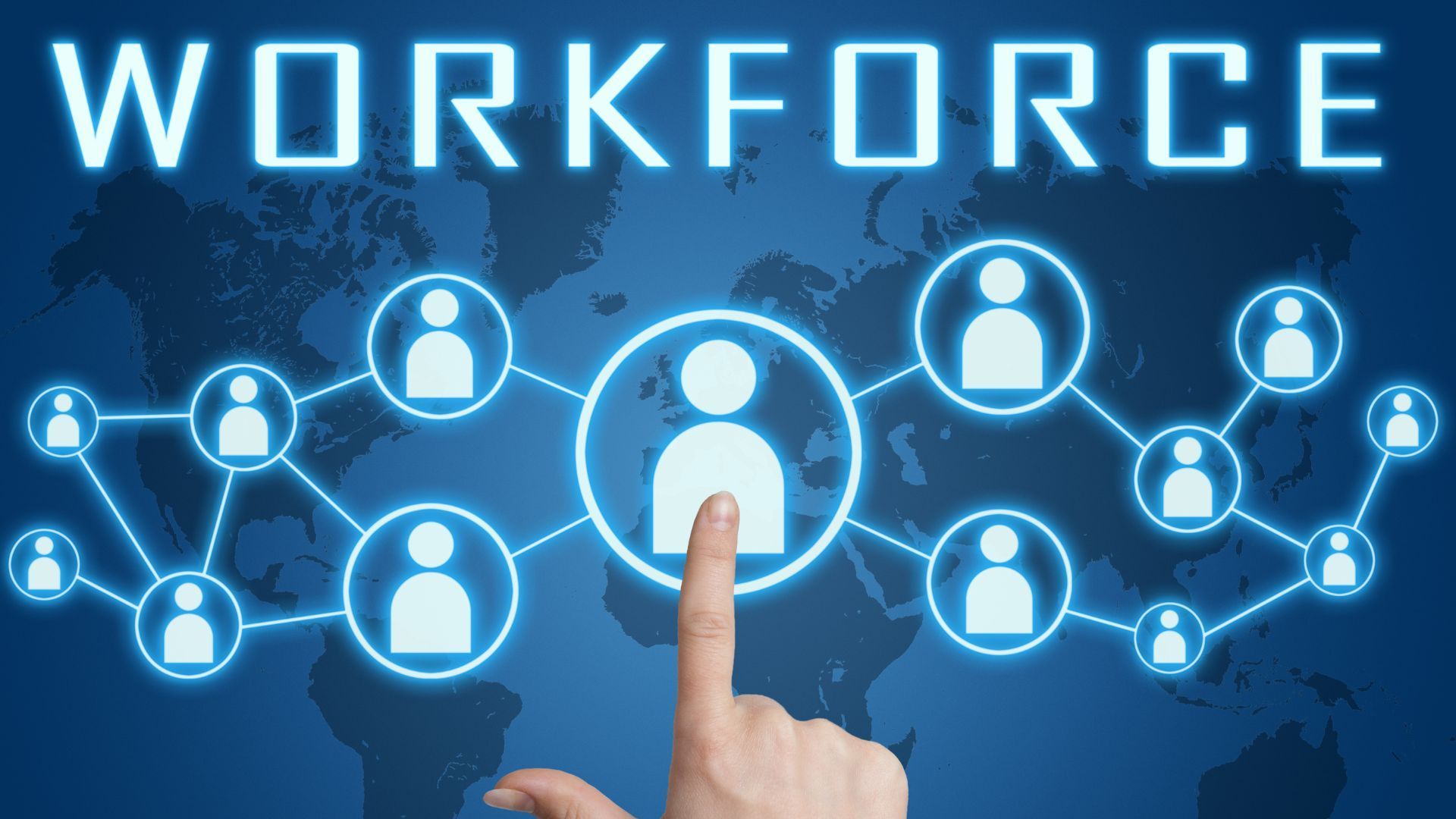The Future of HR: What 2025 Holds for the Workforce
Mark Smith • March 5, 2025

As we move closer to 2025, the landscape of human resources continues to evolve at a rapid pace. With emerging technologies, shifting workplace expectations, and a growing emphasis on employee experience, HR leaders are facing new challenges and opportunities. According to recent survey results, 45% of HR leaders cite upskilling and reskilling as their top priority for the coming year. This aligns with a broader global trend where organisations are actively working to bridge skill gaps, preparing their workforce for a more technology-driven future.
AI continues to be a dominant force in reshaping the workforce. Organisations are increasingly integrating digital tools to automate tasks, streamline recruitment, and enhance employee engagement. Additionally, the concept of workplace flexibility remains a hot topic, with many companies reassessing their policies on remote work. While some businesses push for a return to the office, job seekers continue to prioritise flexibility, creating a growing divide between employer expectations and employee demands.
Another critical area gaining traction is employee well-being. The shift towards psychosocial safety—ensuring that employees feel mentally and emotionally supported—is becoming a priority for forward-thinking organisations. Diversity and inclusion strategies are also evolving, particularly for companies with global operations, as they navigate cultural shifts and legislative changes. With these factors in mind, HR professionals must remain agile, innovative, and proactive in their approach to workforce management.
“Seeing companies lean into upskilling and reskilling is the way forward, especially as AI starts to take over certain tasks.”
In a recent discussion on the future of HR, Mark Smith, Principal Consultant at Frog Recruitment, and Melissa Crawford, Director at Tech With Heart, shared their perspectives on the key trends shaping 2025. Their conversation highlighted the major shifts taking place in the workforce and the critical areas HR professionals should focus on.
According to Melissa Crawford, AI literacy is becoming non-negotiable. “We really have a massive skills shift coming our way,” she stated. “Seeing companies lean into upskilling and reskilling is the way forward, especially as AI starts to take over certain tasks.” She emphasised that HR leaders must think strategically about what new skills will be required as AI becomes more embedded in everyday business operations.
Another emerging challenge is the disconnect between employer expectations and job seeker demands. Mark Smith highlighted this growing divide, noting, “Hiring managers believe they can dictate terms now, thinking everyone wants to work for them, but that’s not the reality. The companies that succeed will be those that listen and adapt.” This shift in power dynamics means that organisations must balance their operational needs with the expectations of a workforce that increasingly values flexibility, career growth, and a supportive work environment.
Melissa also pointed out that the job market is still adjusting from the post-pandemic employment landscape. “A couple of years ago, candidates had the upper hand, with companies offering high salaries and extensive benefits. Now, we’re seeing organisations pulling back on those offerings, but that doesn’t mean job seekers will settle for outdated hiring practices,” she explained. Lengthy recruitment processes and rigid work structures may alienate top talent, making it essential for HR teams to modernise their approach.
Looking further into the future, Melissa discussed the potential impact of humanoid robots in the workplace. “We’re not just talking about automation—we’re talking about AI-powered robots with the capability to learn, speak multiple languages, and process information faster than any human could,” she said. While this may seem like a futuristic concept, the reality is that businesses need to start considering how to integrate these advancements into their long-term strategies.
Preparing for the Future: Key Strategies for HR Leaders
To stay ahead of these evolving trends, HR professionals should focus on the following strategies:
- Prioritise Upskilling and Reskilling
With AI and automation playing an increasing role in business operations, organisations must invest in training employees on new digital tools, analytical thinking, and problem-solving skills. Upskilling programmes should focus on both technical expertise and essential soft skills, such as adaptability and emotional intelligence.
- Enhance Employee Well-being and Psychosocial Safety
Beyond traditional wellness initiatives, companies should implement policies that promote a psychologically safe workplace. This includes fostering open communication, providing mental health support, and ensuring employees feel valued and heard.
- Bridge the Employer-Employee Expectation Gap
Employers must be mindful of the disconnect between what job seekers want and what hiring managers expect. Offering competitive salaries, career progression opportunities, and hybrid work options will be crucial in attracting and retaining top talent.
- Streamline Recruitment Processes
Lengthy and outdated hiring procedures are turning candidates away. Companies should adopt more agile recruitment models, leveraging AI-driven tools to accelerate hiring while maintaining a human-centred approach.
- Prepare for AI and Robotics in the Workplace
The integration of AI-powered tools and humanoid robots will revolutionise the way businesses operate. HR leaders should begin planning how to incorporate these technologies while ensuring employees are equipped with the skills necessary to thrive in a tech-enhanced environment.
- Evolve Diversity and Inclusion Strategies
With global conversations around equity and inclusion evolving, companies need to reassess their D&I initiatives. Whether through bias-free hiring processes, inclusive leadership training, or creating diverse work environments, businesses must ensure their policies reflect modern workforce expectations.
The future of HR is one of transformation. Organisations that proactively adapt to these changes will be the ones best positioned to thrive in the evolving employment landscape of 2025 and beyond.
Grow your career and team
Get in touch with Frog Recruitment
Auckland I
Wellington
In business since 2002 in New Zealand, Frog Recruitment is an award-winning recruitment agency with people at our heart. Located across Auckland and Wellington, we specialise in accounting and finance, business support, education, executive, government, HR, legal, marketing and digital, property, sales, supply chain, and technology sectors. As the proud recipients of the 2024 RCSA Excellence in Candidate Care Award, we are dedicated to helping businesses achieve success through a people-first approach.







